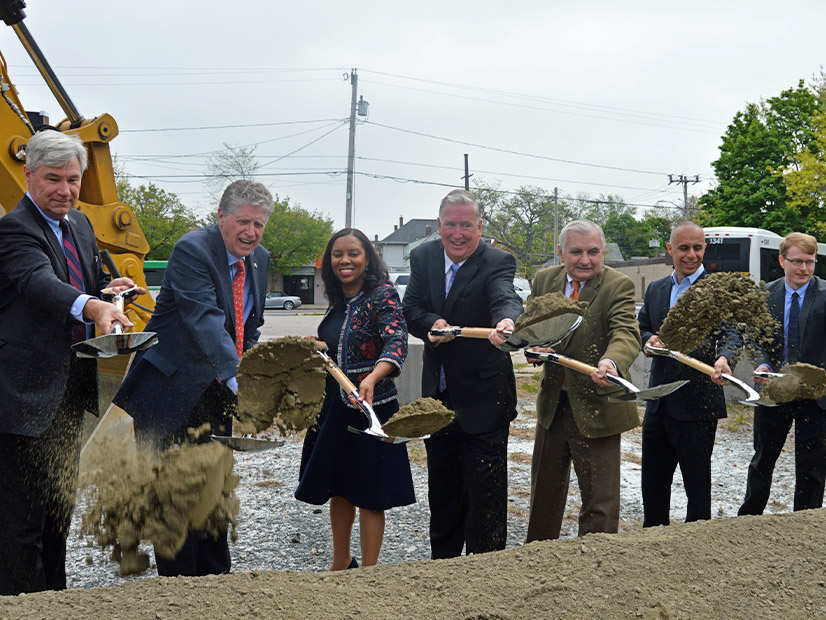
Fully funding Rhode Island’s Transit Master Plan could reduce residents’ vehicle miles traveled (VMT) by 8% and should be a key recommendation in the state’s next greenhouse gas emissions reduction plan, Mal Skowron, transportation program and policy coordinator at the Green Energy Consumers Alliance, told state officials Tuesday.
Skowron made her recommendation during a listening session of the Rhode Island Executive Climate Change Coordinating Council (EC4) on priorities for reducing transportation emissions that should be in the update to the 2016 GHG Emissions Reduction Plan. Rhode Island’s Act on Climate, which Gov. Dan McKee signed last spring, directs the EC4 to submit the updated plan to the legislature by the end of the year.
Listening session attendee Hans Scholl agreed with Skowron’s call to fund the plan, saying that the “vast majority of Rhode Islanders live within 10 minutes of public transportation, but it’s just totally underutilized.”
Capital costs of the Master Plan would be $1.9 billion to $3.1 billion through 2040, with operating costs of $237 million annually.
Reducing VMTs is one of the actions recommended in the 2016 GHG plan to cut transportation emissions from fossil fuels. The EC4 is considering priority actions for the plan update that could further a VMT reduction goal, including increasing transit and share ridership.
The State Planning Council adopted the transit plan in December 2020 under the umbrella of a Long-Range Transportation Plan. Funding for some of the plan was in place at the time of its adoption, but full implementation isn’t expected until 2040. Since its adoption, additional funding has been moving more of the plan forward.
U.S. Sen. Jack Reed helped secure a $900,000 grant to study a major transit corridor expansion as recommended in the plan for services that provide high-volume markets with fast and frequent service. An additional $225,000 in matching funds for the study are included in McKee’s proposed FY23 budget.
The transit plan said high-capacity services could include rapid bus routes with limited stops and light rail featuring two-car trains.
Completion of the study will allow the state to take advantage of funding opportunities in the Infrastructure Investment and Jobs Act, Reed said.
Rhode Island’s 2016 GHG reductions strategy also recommends electrification of the Rhode Island Public Transit Authority’s (RIPTA) bus fleet and state passenger and freight rail systems.
“RIPTA has made a lot of progress with electrifying its fleet,” Carrie Gill, chief economic and policy analyst at the Rhode Island Office of Energy Resources, said during the listening session.
McKee and Reed joined authority officials Friday to break ground on the state’s first charging station for electric buses to use while on a route during service hours. The governor also announced Thursday that RIPTA has issued a request for expressions of interest to design a new transit center that would support transit growth as envisioned in the master plan.
The EC4 held a listening session on the electric sector in April to inform the GHG plan update, and another session is scheduled for the thermal sector (residential, commercial and industrial heating and natural gas distribution) in June.


